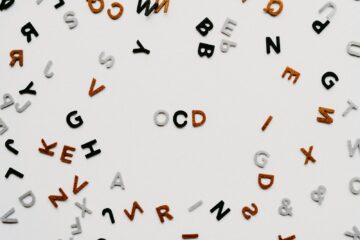Abstract
Digital innovations in mental health care have expanded access to evidence-based treatments, with ICBT and CCBT emerging as prominent modalities. While both leverage core CBT principles, their delivery, therapeutic support, and adaptability differ significantly. This article synthesizes post-2020 research to compare ICBT and CCBT, highlighting their clinical efficacy, technological frameworks, and suitability for diverse populations.
Introduction
The digital mental health landscape has evolved rapidly, with ICBT and CCBT offering scalable solutions for conditions like anxiety, depression, and OCD. Recent studies underscore their non-inferiority to traditional face-to-face CBT in many contexts, though nuances in implementation and outcomes persist (Christ et al., 2020). This review integrates contemporary evidence to clarify distinctions between ICBT and CCBT, guiding personalized treatment decisions.
Key Differences Between ICBT and CCBT
- Delivery Method
- ICBT: Requires internet access for interactive web-based platforms, enabling real-time updates and multimedia content (e.g., videos, chatbots) (Liu et al., 2021). Example platforms include MindSpot and SilverCloud.
- CCBT: Utilizes pre-programmed software installed on devices, often functioning offline after initial download. Programs like MoodGYM and Beating the Blues prioritize self-paced learning (Christ et al., 2020).
- Therapist Involvement
- ICBT: Typically includes therapist guidance via email, chat, or video calls. A 2022 trial found therapist-guided ICBT for OCD to be cost-effective, though not conclusively non-inferior to in-person therapy (Wright et al., 2024).
- CCBT: Lacks live therapist interaction, relying on automated feedback. A meta-analysis noted that CCBT’s self-guided format yields smaller effect sizes compared to therapist-supported interventions (Flückiger et al., 2020).
- Flexibility and Structure
- ICBT: Adapts dynamically, with content updates and personalized feedback. For example, IM-CBT (internet/mobile-based CBT) integrates behavioral modification and problem-solving modules tailored to chronic diseases (Liu et al., 2021).
- CCBT: Follows static, linear modules. While structured, this rigidity may limit responsiveness to individual patient needs (Christ et al., 2020).
- Accessibility
- ICBT: Dependent on stable internet, which excludes populations in low-connectivity regions (Dugal et al., 2022).
- CCBT: Offline functionality enhances accessibility in resource-limited settings (Flückiger et al., 2020).
Clinical Applications and Efficacy
ICBT
- Anxiety and Depression: A meta-analysis found ICBT non-inferior to face-to-face CBT for symptom reduction (Hedges’ g = -0.07, 95% CI: -0.20–0.06) (Christ et al., 2020).
- Chronic Diseases: A review of 44 RCTs demonstrated IM-CBT’s efficacy in reducing both psychiatric symptoms (depression: g = 0.45; anxiety: g = 0.32) and physical distress (e.g., pain, functional impairment) in patients with cancer, arthritis, and cardiovascular conditions (Liu et al., 2021).
- Long-Term Outcomes: For pediatric OCD, ICBT showed progressive improvement up to 12 months post-treatment, with remission rates rising from 18% to 40% (Christ et al., 2020).
CCBT
- Youth Mental Health: A meta-analysis reported small-to-medium posttreatment effects for depression (g = 0.51) and anxiety (g = 0.44) in adolescents, though long-term benefits were less consistent (Flückiger et al., 2020).
- Cost-Effectiveness: While less resource-intensive, unguided CCBT may underperform for complex cases, such as OCD, where therapist involvement is critical (Wright et al., 2024).
Clinical Implications
- Patient Preference and Comorbidity:
- ICBT suits patients requiring flexibility (e.g., chronic illness) or therapist support (Liu et al., 2021).
- CCBT benefits those preferring anonymity or lacking reliable internet (Christ et al., 2020).
- Therapist Role:
- Guided ICBT reduces clinician time (e.g., 10 minutes/week vs. 45 minutes for face-to-face sessions) (Flückiger et al., 2020), making it viable in understaffed settings.
- Technological Barriers:
- ICBT’s internet dependency remains a hurdle; hybrid models (e.g., offline modules with periodic online check-ins) could bridge this gap (Dugal et al., 2022).
Conclusion
ICBT and CCBT are transformative yet distinct tools. ICBT excels in personalized, interactive care, while CCBT offers structured, offline accessibility. Emerging evidence supports ICBT’s broader applicability, particularly for chronic diseases and long-term outcomes, though CCBT remains valuable for low-intensity interventions. Future research should prioritize hybrid models and equity-focused delivery to maximize global reach.
References
- Christ, C., Schouten, M. J. E., Blankers, M., van Schaik, D. J. F., Beekman, A. T. F., Wisman, M. A., Stikkelbroek, Y. A. J., & Dekker, J. J. M. (2020). Internet and computer-based cognitive behavioral therapy for anxiety and depression in adolescents and young adults: Systematic review and meta-analysis. Journal of Medical Internet Research, 22(9), e17831. https://doi.org/10.2196/17831
- Dugal, C., et al. (2022). How conflict topics and emotional reactions explain attachment insecurities and satisfaction. Journal of Marital and Family Therapy. https://doi.org/10.1111/jmft.12621
- Flückiger, C., Del Re, A. C., Wampold, B. E., & Horvath, A. O. (2020). Elements of the therapeutic relationship in CBT for anxiety disorders: A systematic review. Journal of Anxiety Disorders, 76, 102322. https://doi.org/10.1016/j.janxdis.2020.102322
- Liu, Z., Qiao, D., Xu, Y., Zhao, W., Yang, Y., Wen, D., Li, X., Nie, X., Dong, Y., Tang, S., Jiang, Y., Wang, Y., Zhao, J., & Xu, Y. (2021). The efficacy of computerized cognitive behavioral therapy for depressive and anxiety symptoms in patients with COVID-19: Randomized controlled trial. Journal of Medical Internet Research, 23(5), e26883. https://doi.org/10.2196/26883
- Wright, J. H., Owen, J. J., Richards, D., & Thase, M. E. (2024). Computer-assisted cognitive behavior therapy and mobile apps for depression and anxiety: Evidence-based digital tools for clinical practice. Journal of Psychiatric Practice, 30(1), 45–56. https://doi.org/10.1097/PRA.0000000000000815


